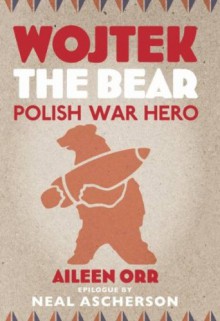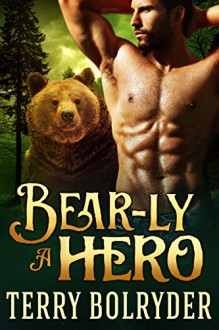
A book both heart-warming and heart-breaking.Heart-warming because of the very real affection with which Orr approaches her subject: Wojtek's story has obviously touched her heart. And also due to the love and humanity that a little bear cub (and later a not-so-little full-grown bear) brought to a group of Polish soldiers, taken to Stalin's labour camps, released due to political expedience, but their country lost and the fate of their families unknown, though probably not pleasant. It would have been easy for them to become bitter and vengeful men, but their tender feelings were nurtured and preserved by the need to care for their little charge, and then to keep him out of trouble as he grew into a 500lb furry ball of mischief. But commanding officers, it seems, were as much putty in Wojtek's paws as were his comrades.There is, undoubtedly, a very heavy leavening of anthropomorphism in the anecdotes that Orr has collected from those who served with and encountered Wojtek. He is ascribed motives and emotions that can only be projections and speculation. And yet, while I often find that sort of thing rather cloying, I didn't mind it at all in this case. Somehow, it seems right and probable that Wojtek, who was raised amongst humans, who was officially a private in the Polish army, should think and feel somewhat as we do. At any rate, I'm prepared to give him the benefit of the doubt.Heart-breaking because of the what I learned of the history of Poland, its proud heritage of democracy and liberalism, ultimately destroyed by the politico-military machinations of her larger neighbours, Russia and Germany, as their empires rose to prominence; its partition and reinstatement, and then the awful tragedy of the Nazi invasion and the death camps of Hitler's final solution; then the frankly shocking way in which the Poles were sold out to Stalin by the Western Allies at the end of the war. Maybe Churchill and Roosevelt really believed that Stalin would allow Poland to hold democratic elections, or more likely, after the years of war, neither could face the conflict with a too-powerful Russia that would inevitably follow should Stalin's demands not be met. In either event, to deny the Poles a part in the official VE Day celebrations was adding insult to injury.I had known that Polish pilots played a much greater part in the Battle of Britain than was officially recognised at the time, indeed it's likely that we would have lost that battle without them, but I wasn't aware of the massive contributions Polish soldiers had made in other areas of the war.I am saddened that in Britain today, Poles coming to work under European Union free-labour legislation are pilloried by the right-wing press as interlopers, "taking our jobs", forgetting that without the grandparents of these continental neighbours and comrades-in-arms, we probably wouldn't have a country for them to come to.At the end, there is hope: Wojtek, who when he was de-mobbed lived out his life in Edinburgh Zoo, is a symbol of the friendship and long-standing links between Poland and Britain. Aileen Orr is campaigning for a memorial statue to Wojtek and (what I assume is) his beloved keeper, Peter Prendys.This book has made me want to learn more about Poland and its history. It's also made me write what is probably my longest Goodreads review (and it could easily have been longer!), so it's a book that has clearly resonated with me. I think I need to upgrade my rating to 5 stars.


 Log in with Facebook
Log in with Facebook 








